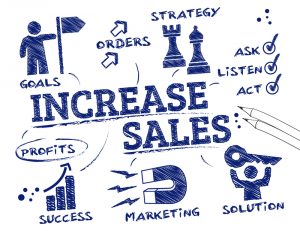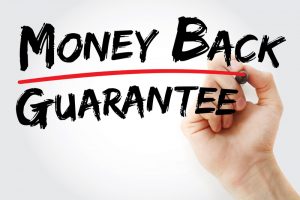Okay, I love working with my own list, nurturing it, emailing it everyday… but I know it’s not everyone’s cup of tea. So when I run across a business that makes good money without having to nurture a list, and it only takes a few hours per week or month, I figure it might be worth sharing.

Mind you, the $5,000 a month figure is somewhat arbitrary.
You could make less or more, depending on how good you are at this and how many deals you do a month.
And perhaps the best part of all is you’re providing a very valuable service to new marketers looking to start their own online business without having to worry about the details.
Here’s how it works as told to me by someone who has been doing this for months now…
You’re going to be creating unique, ready-to-go sales funnels that are proven to convert.
No worries, you’re not doing this from scratch. Far from it. Instead, you’re using PLR – the kind that provides everything ready made to build a sales funnel.
The key is to make everything in the funnel unique, even though you’re using PLR.
So you find some good PLR that fills a real desire in the marketplace.
Rename everything and create new graphics, too.
You can even go in and change the coding on the plugin, if that’s what you’re using. Just hire someone to tweak it, maybe adding a new feature.
If you’re using written PLR, hire someone to flesh it out a bit more and change it up a little.
Then you create a squeeze page to offer something for free in return for the visitor’s email address. It could be a report, book, plugin, etc. Remember to use PLR that includes giveaway rights.
Focus your effort on making this offer as irresistible as possible. You might need to rewrite the sales page to do this, or hire someone to write it for you.
Next you create an upsell offer. This can be a high quality PLR course. Again, rename it, and create a new sales page that converts. Charge a fairly low price for the upsell – between $19 and $39.
Yes, you might need to invest some money in copywriting and even setting this up if you don’t want to do it yourself. But if you shop around, you can probably get it done for $200 to $500, depending on how much you do yourself.
Now that you have your funnel set up, buy 1,000 clicks from solo ads or Facebook. Send them to your squeeze page and through the funnel.
You’re doing this to prove the funnel works, as well as to start building the list.
After 1,000 clicks, if you get a 40% opt-in rate, you’ll have 400 subscribers.
If 5% of the subscribers buy the upsell, and the upsell is $30, then you’ve brought in $600.
This can cover your costs or come close to it, depending on how much you spent.
You can then buy more traffic if you like, building the list and testing and tweaking the funnel.
But you don’t have to. If you want to stop at this point, you can.
Or continue on and build the list bigger, either one.
In either case, when you get to the point that you’ve had enough testing, tweaking and list building, it’s time to flip the funnel and make the real money.
You’re selling a funnel that comes complete with a list of several hundred subscribers that’s already generating profits on the upsell, which means it’s proven.
And just as important, your funnel is unique, too. It has its own proven squeeze page, its own proven sales page, its own lead magnet and product…
…it’s a complete one-of-a-kind proven sales funnel.
You can sell this for $3,000 or more – sometimes a lot more – on Flippa.
The fellow who told me about this averages about $5,000 a sale. Some sites have sold for more, some less.
And he does two of these a month by outsourcing the work.
Frankly, I don’t think he personally invests more than 5 hours into each website.
So it’s a very lucrative side income, so say the least.
The key here is to pick niches with ready-made markets – niches where people are already spending lots of money.
You’ll want to find the best PLR you can get your hands on.
Make everything unique.
And practice.
The first time my friend tried this, he only cleared a few hundred dollars.
The second time, he cleared over $2,000.
Now he averages about $5,000. So practice and experience do count.
Perhaps best of all, there is no customer support. Once he sells a site, it’s totally out of his hands and he’s on to the next one.
So it’s great for somebody who doesn’t like to email a list day after day, build a relationship with readers and so forth.
If this is something that interests you, spend some time researching which sites are selling well, and also where to find the best quality PLR.
Once you know those two things, everything else will fall into place.






















